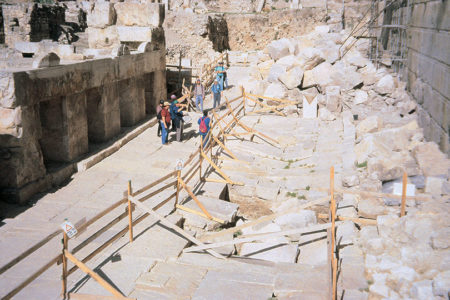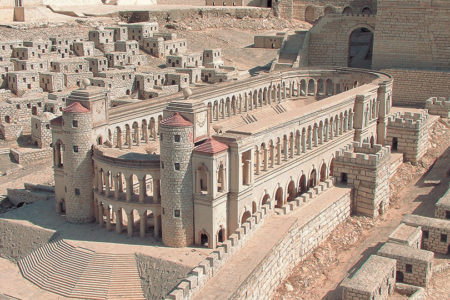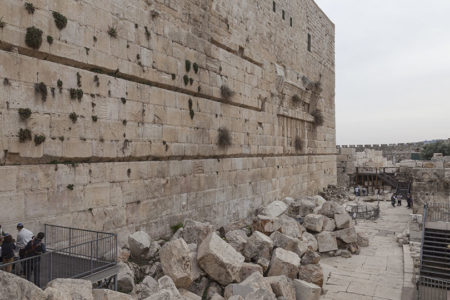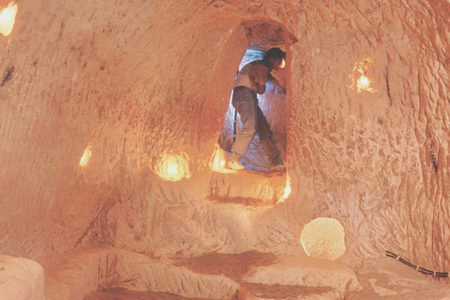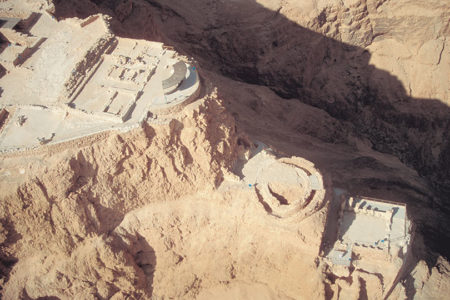Eye on the Middle East Sep/Oct 2003
When Israel, in accordance with its agreement with the new Palestinian government, pulled Israel Defense Forces troops out of Bethlehem recently, many residents of the Jerusalem suburb of Gilo feared the worst. And they had good reason.
When Yasser Arafat rejected former Prime Minister Ehud Barak’s overly generous offer for peace in 2000 and declared war on Israel instead, Gilo residents immediately came under attack.
Commandeering houses in the nearby Christian-Arab village of Beit Jalla, Arafat’s gunners shot directly into the living rooms of Gilo inhabitants and wreaked havoc with people on the street. Israeli forces finally drove out the attackers and built a wall to prevent enemy bullets from reaching the windows of homes and a nearby school. That wall has given residents of Gilo and their families at least a small sense of security.
It therefore came as a surprise when U.S. National Security Advisor Condoleezza Rice, in the region on behalf of President George W. Bush, harshly criticized Israel for constructing such protection, especially in areas where security fences are being erected. Those fences are being built not to establish borders but to protect innocent Israelis from the terrorist attackers and suicide bombers who enter Israel from those areas.
But that fact didn’t seem to play into the case the American administration made against Israeli self-protection. Earlier, Palestinian officials complained to Rice about the existence of the security fence; and she in turn responded by telling Israeli officials to stop building the fence, even if it was not meant to create a border. Regardless of Israel’s reasons for constructing it, she said, the fence gives the impression of a border to the Palestinians. Her words were good news to the Palestinians, but perplexing to Israelis.
At the same time the Rand Corporation rated Israel’s security fence as the top “under-attended international problem” in the world today. The report forecast grave consequences if Israelis continue to build protective barriers. For starters, said Rand, the barriers are infuriating the Palestinians —which will provoke more attacks, prompt violence against Israelis overseas, and escalate terrorist mortar and ground-to-ground missile attacks against targets inside Israel.
Apparently Rand, America’s largest “think tank,” failed to give any thought to why Israelis feel it necessary to build a security fence and protective walls in the first place. If it was to enlarge their borders, they could have accomplished that goal more easily by simply moving their army forward to whatever position they chose. That, however, was not the case.
They built the fence for one reason and one reason alone: to protect innocent men, women, and children from continually being slaughtered by Arabs infiltrating Jewish communities from the areas being fenced off. For international arbitrators to forbid, not only Israelis, but any people on earth from employing whatever measures are necessary to protect themselves is playing far outside the recognized rules of the road on international rights of self-preservation.
The arbitrators of peace in that troubled region, whoever they may be, are either unwilling or unable to understand the issues basic to the conflict that is actually a staged war to annihilate the State of Israel. Borders must be negotiated and respected by those who live on both sides of them. Until that feat is accomplished, building protective fences is a good and necessary thing to do. And anything that even hints at encouraging aggressors to believe rules are being made to allow them to continue their terrorism, guarantees more bloodshed on both sides.

